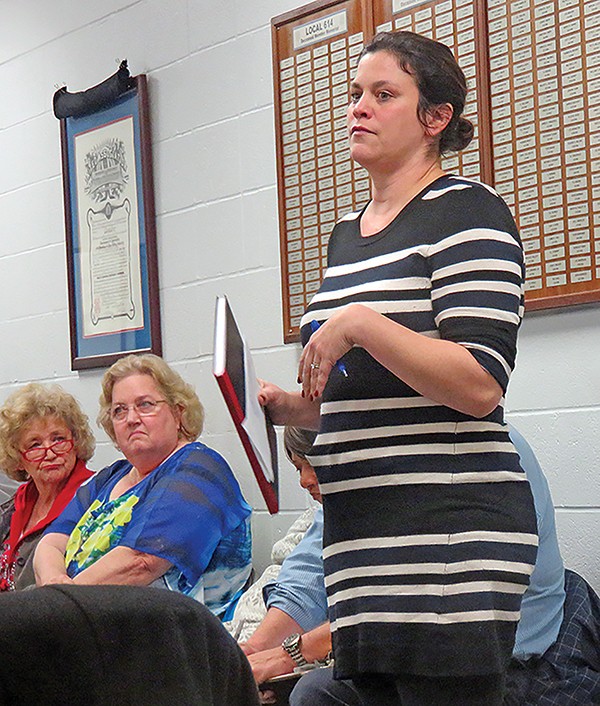As is pointed out in this week’s Flyer editorial, the Shelby County Commission, the elective body entrusted with budgetary oversight over public education in the county, has made a point of voting unanimously against the school-voucher bill now moving through the General Assembly.
It did so for both financial and philosophical reasons. And the commission’s unanimous vote was reached in full anticipation that the voucher bill, sponsored by state Senator Brian Kelsey (R-Germantown), would, as has been the custom in legislation on this subject, be among the last measures coming up for a final vote in the current legislative session, due to expire in April.
The commission’s vote was a clear signal of its attitude toward vouchers, and it was made in anticipation of the fact that it would soon have the opportunity to designate an interim successor in state House District 95 to Mark Lovell, the Republican representative who, faced with allegations of sexual misconduct, was recently forced to resign by the leadership of his party.
While a special election to replace Lovell is set to conclude on June 15th, well after the completion of the General Assembly’s work, the commission made haste to set up machinery for the interim appointment whereby applications would be made available from March 21st to March 27th, interviews would be conducted March 29th, and an appointment made April 3rd, in time for the eventual appointee to be serving in the House for the duration of the current session.
Estimates of how long that period could be range from a week to the greater part of a month, but the assumption, again, was that the interim state representative-designate would have an opportunity to vote on the voucher question.
That was how matters stood until a move was initiated among various local Democratic activists to take advantage of the commission’s current composition — seven members elected as Democrats and six elected as Republicans — to appoint a Democrat as the interim state representative from District 5.
That initiative was first made public in a letter sent to the commission’s seven Democrats by Dave Cambron, president of the Germantown Democratic Club and a member also of the 13-member ad hoc group appointed recently by state Democratic chair Mary Mancini of Nashville to revive the Shelby County Democratic Party. (For a variety of reasons, including what Mancini called “many years of dysfunction,” the dissension-prone local party was formally decertified by the state Democratic executive committee last year.)
Cambron’s letter began with a clarion call: “We have a unique opportunity to send a new progressive voice to the state capitol from Shelby County.” Cambron made the case for local party activist and state Democratic committee member Adrienne Pakis-Gillon, “a leading progressive activist, a club member, and a staunch Democrat who will not hesitate to stand up for the values that we are.”
Cambron said it was “critical that Adrienne is chosen to fill the vacancy for State House District 95” and went on to contend that four of the commission Democrats had committed to support her candidacy, while three — he named Eddie Jones, Justin Ford, and current chairman Melvin Burgess — had not.
“This is simply not acceptable,” Cambron wrote. “Our Democrats must be unified and stand up against the radical right-wing agenda coming out of the State Capitol.”
In reality, not all of the four Democrats Cambron claimed as committed to Pakis-Gillon would confirm the fact, and at least one made it clear that he resented being put on the spot, as did one of the three Cambron mentioned as uncommitted.
The Republican members who had put themselves on the record against vouchers began to react negatively to what they saw as the introduction of an extraneous partisan factor. Several of them noted the availability of anti-voucher Republicans among potential applicants for the interim position and said they saw the move to appoint Pakis-Gillon as a conscious rebuff to the constituency of District 95, one of the more consistently Republican-voting areas in the state.
A motion by GOP Commissioner Terry Roland of Millington to forgo the previously agreed-on appointment schedule achieved only a tie vote in committee and therefore technically failed, but it picked up support from Republican David Reaves of Bartlett, a former Shelby County Schools board member who had spearheaded the commission’s move to appoint an anti-voucher interim state representative.
As of this week, the situation was fluid, with neither Democrats nor Republicans having a unified position on the matter, and with the body’s previous solidarity on the vouchers issue so riven by disagreement on the partisan issue that there is now serious doubt as to whether an interim appointment can even be made.
The situation will have to be resolved on March 20th, the date of the commission’s next public meeting, or there will not be time for the appointment process to be carried out. Not only would District 95 lack a vote on a matter which is predicted to have a close final outcome, but the commission’s original intent to use the appointment to make a statement on vouchers will be surrendered as well.
Only once before has the commission broken with the tradition of filling a vacancy with a member of the same party as the person being replaced. That was in 2009 when a majority of seven Democrats chose fellow Democrat Matt Kuhn as an interim commissioner to replace Republican David Lillard, who had left to become state treasurer.
That move produced an immediate fallout in Nashville, where Republican legislators from Shelby County protested by imposing a stall on the commission’s legislative agenda, grudgingly relenting somewhat later when Republicans like then GOP Commissioner Mike Carpenter and then District Attorney General Bill Gibbons made public pleas for action on the agenda.
 Jackson Baker
Jackson Baker 
 JB
JB 
